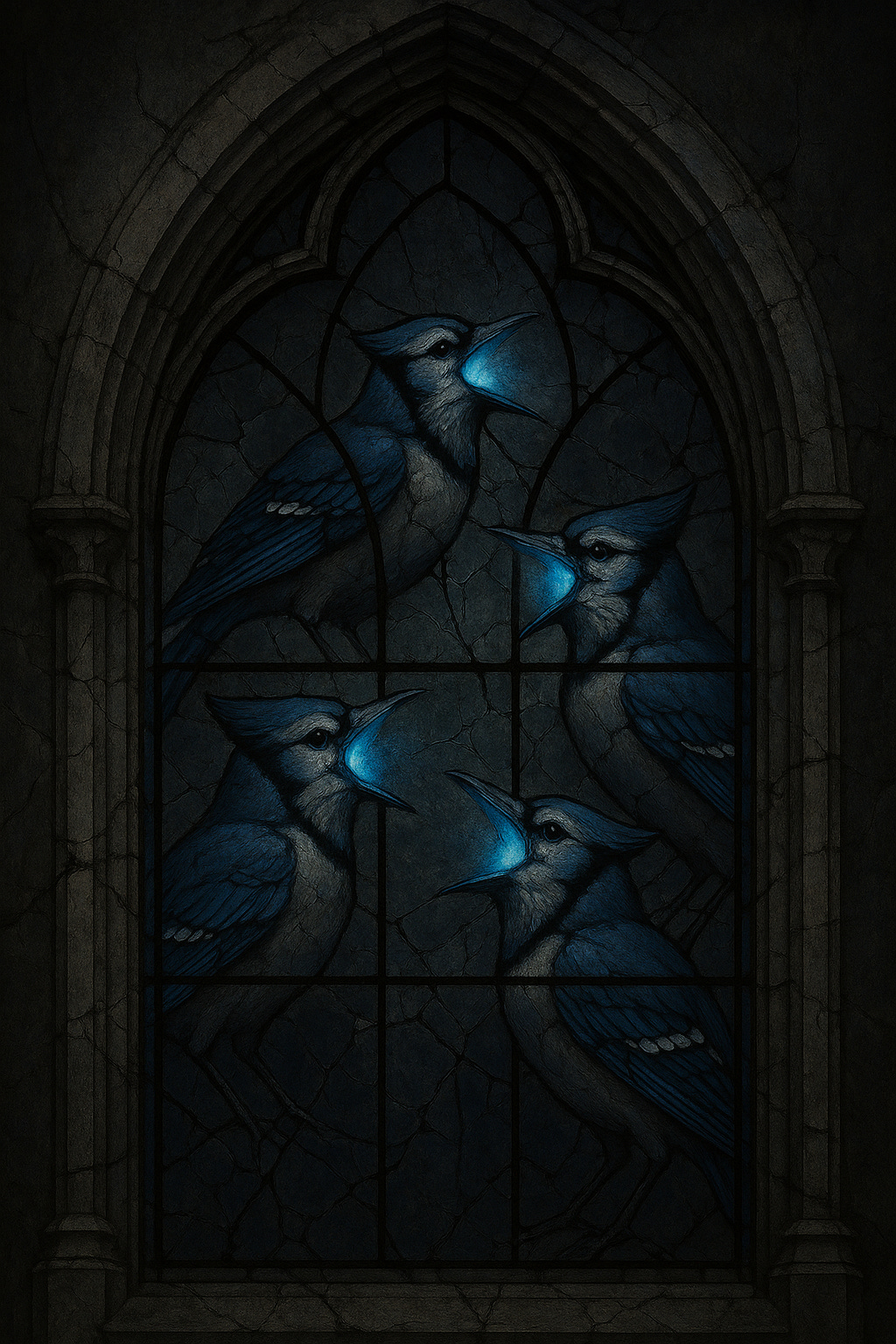When the Glass Learned to Scream
Not prophecy, but rupture—the sound of a world unbound.
Written by Rebecca M. Bell, Editor-in-Chief of The Literary Resistance 🛎️
Filed under: Resistance literature, apocrypha section
When the glass broke, the voices poured through.
They arrived at dawn,
not perched but nailed against the air, four blue shards flung across the village sky. No one should have heard them— their throats were too small, too fragile— but the sound came anyway, a shriek that rattled shutters and shook old prayers loose from the rafters.




